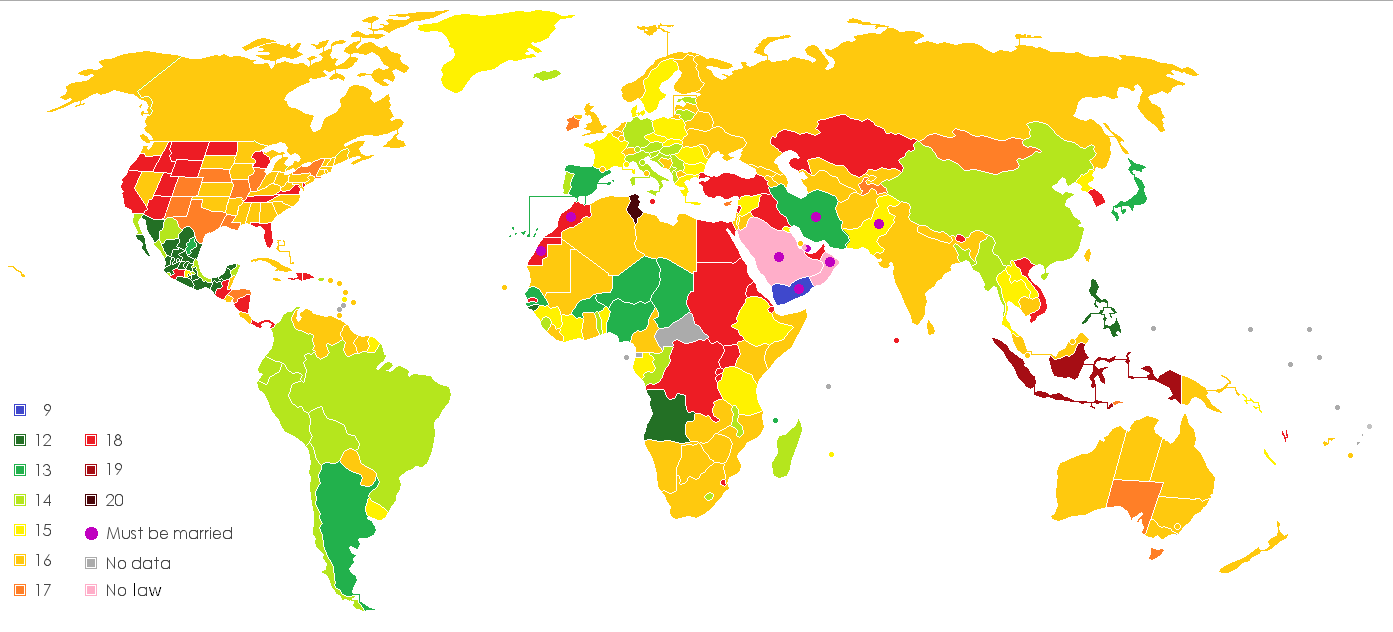One reason why kids grew up faster in past centuries is because life expectancy was a lot shorter. There just wasn't time to give kids an extended childhood. As soon as they were physically able to do a job, they were put to work. Period, end of childhood, and they were lucky if they came out of it having had any education at all (ie. reading, writing, arithmetic). In modern times, we have child labor laws to prevent this sort of thing.The thing here is that "18" is purely a social construct, and has no objective basis for it. Why do we allow 18 year olds to vote? To join the army? To marry? To enter into any number of other legal contracts? But (in the US at any rate) they have to wait until 21 to drink? All social constructs. They have no validity in the objective sense. And they have changed over time, and are different in different cultures. "18" is just a modern Anglosphere construct which has been more or less exported to much of the rest of the world. But ignored by even more of the world.
The ages societies consider people emotionally or mentally mature enough to do some things just has nothing to do with biological realities. Girls go through puberty ages 12-14. Some even younger. Most girls will reach their full adult height by 15. But their bodies may not reach maximum physical maturity for several more years. Boys are a little later than that, and some men don't reach their full adult size until they're past 20. As for mental/emotional maturity, how would you judge? What objective measure could you possibly use?
200 years ago a boy of 14-16 might well be head of his family. He might be enlisted in the army. He might be married, he might be farming his own plot of land. A girl past the age of 16 might be an old maid, and have missed her best chance at marriage. It seems to me that people are taking a social construct that's less than a century old and holding it up as some universal rule. Why 18? Why not 16? Why not 20? With puberty, at least you have an objective measure. With a social construct, it's just a choice.
It was considered common for girls to marry anywhere from 14-16 onward. By the time they were 20, if they were still unmarried, it was considered shameful. You want to know how recent a thing it is for unmarried older women to be considered normal? When I was in my 20s (back in the '80s), some of my classmates and older family members would come up to me and say right out, "You're not married yet? Why not, what's the hold up?" It wasn't said in a friendly way - it was just another way of saying, "You're not married at your age? Seriously, what the hell is wrong with you, that you're not married yet?"
Thankfully, my dad never pushed like that. Neither did my grandmother. My mother, however, was relentless in her attitude of "I want you to get married and have kids. I want to be a grandmother." Even the slightest hint that I'd met someone, or was dating, was enough to provoke a reaction of "Oh, good, is it serious?" like she'd be only too happy to get the wedding all arranged and have it a done deal within the month.

As far as I am aware, kids can get their learner's permit at 14, and take their regular driving tests at 16 - at least that's how it was when I was a teenager - I never did learn to drive, though I aced the written test that they give the 14-year-olds. The legal age in Alberta is 18 - for voting, drinking, and buying lottery tickets and tobacco products. However, most stores have signs that say they will ask for ID if someone looks like they're younger than 25, just to make sure that no mid/late teens slip through.
There is a movement among some people to lower the voting age to 16 - something I approve of, as it would have a positive impact on the high school kids who are taught about democracy in their high school social studies classes, but not allowed to actually participate until they're out of school and have many other things on their minds that tend to take much greater precedence over voting - college/university, finding work, moving out, etc. I remember when I was 18 - I couldn't care less that it meant that I was legally old enough to go into a bar or liquor store. What it meant to me was that I could finally join my grandparents when they did this thing called Voting (yes, they raised me to understand that it was something important). I felt ready to vote at 16 - I went to the municipal and federal election forums at that age, and it just didn't seem fair that I wasn't allowed to actually cast a ballot.


 ) I'd argue there's such a thing as tone and intentionality that 13-year-old kids do have fundamental control over. Still waiting for his considerations about my above points though, Farm Boy, if you're going to discuss this, please also talk about my latest post, I'm interested in what you think, honestly.
) I'd argue there's such a thing as tone and intentionality that 13-year-old kids do have fundamental control over. Still waiting for his considerations about my above points though, Farm Boy, if you're going to discuss this, please also talk about my latest post, I'm interested in what you think, honestly.
